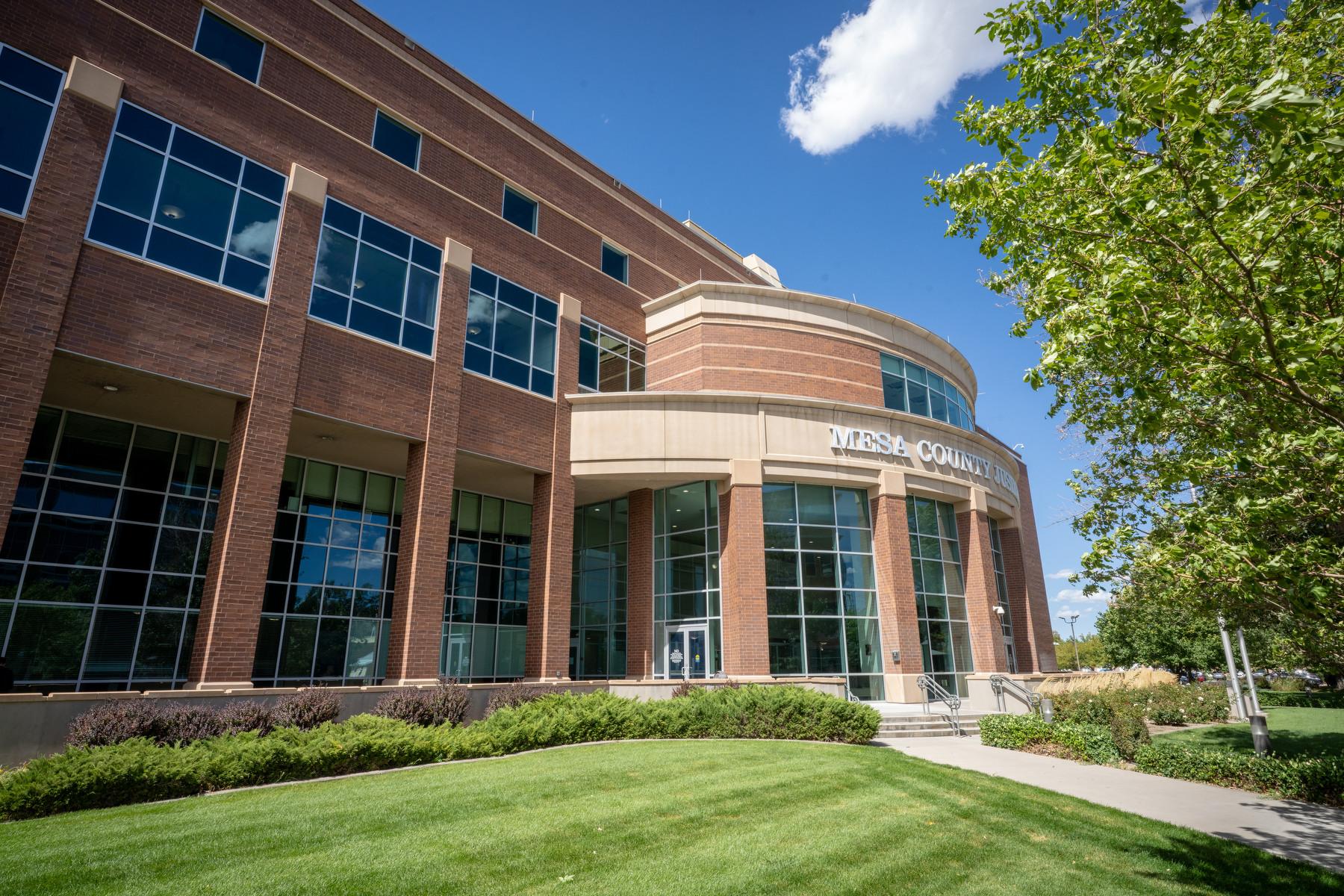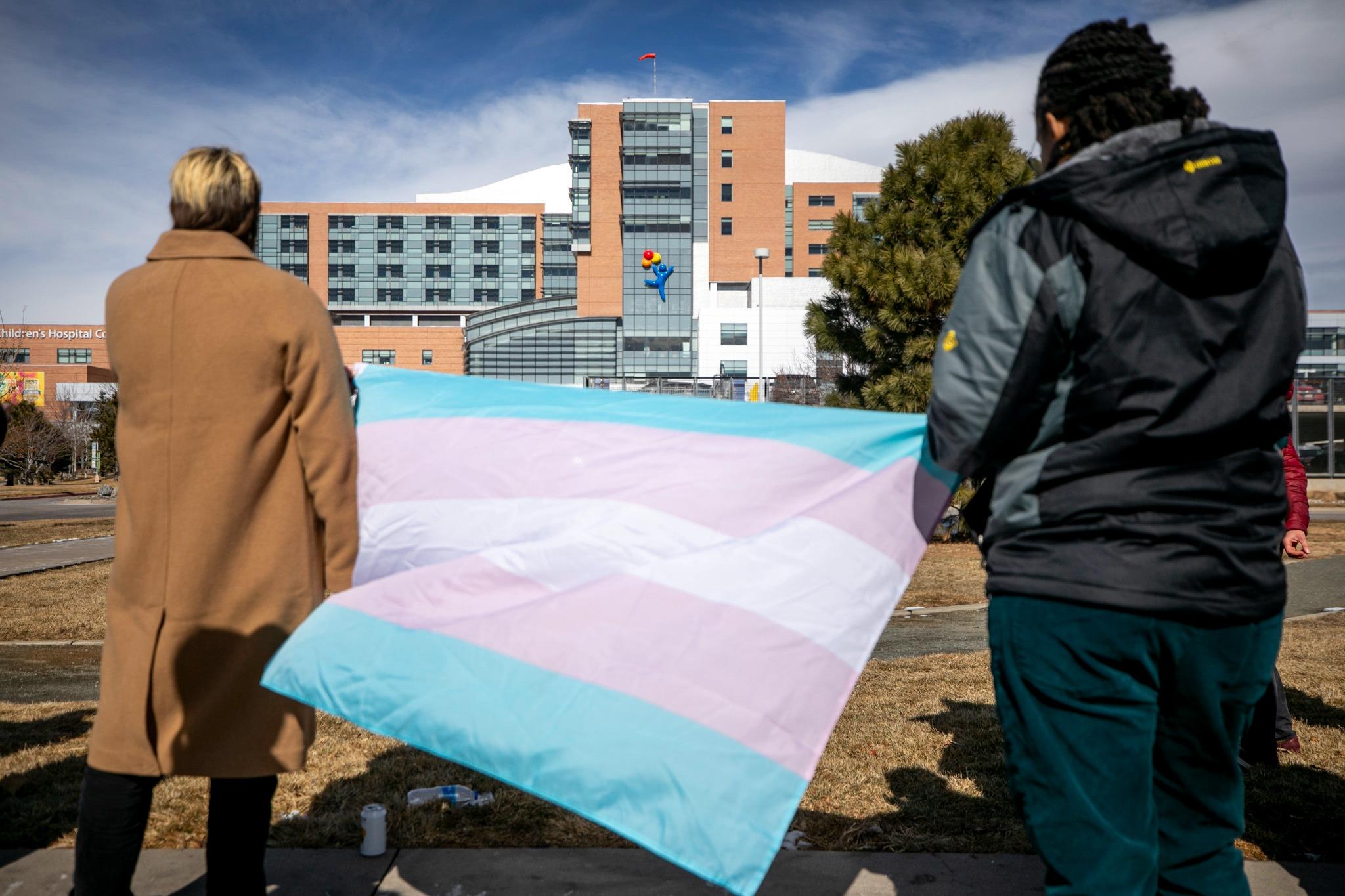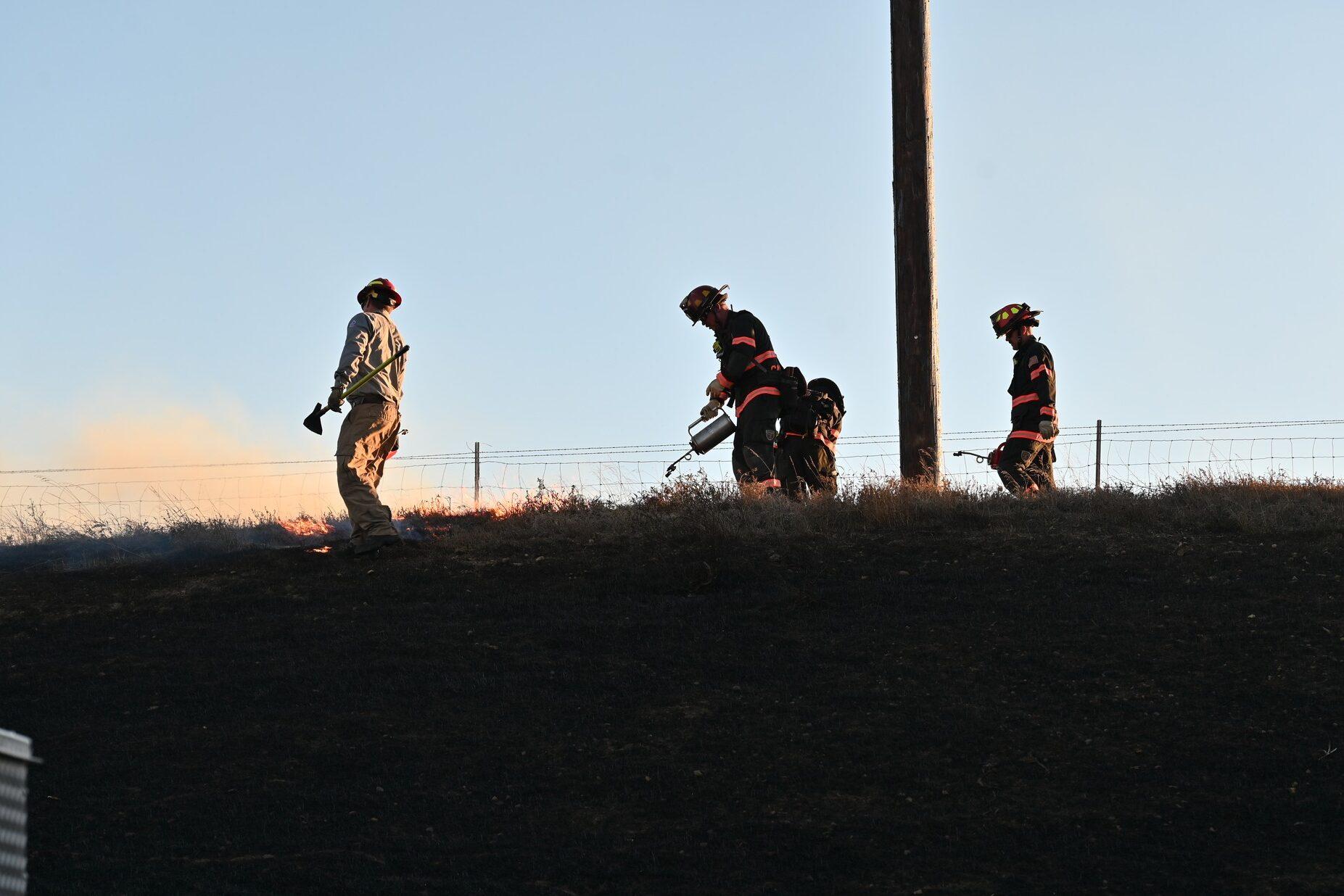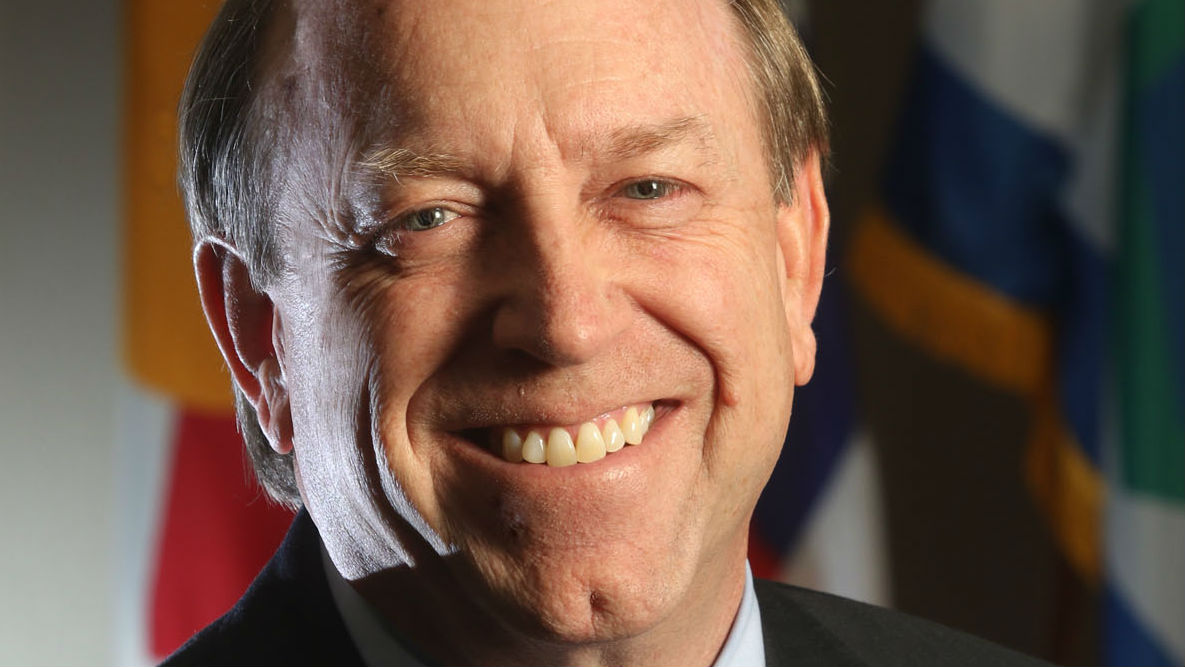
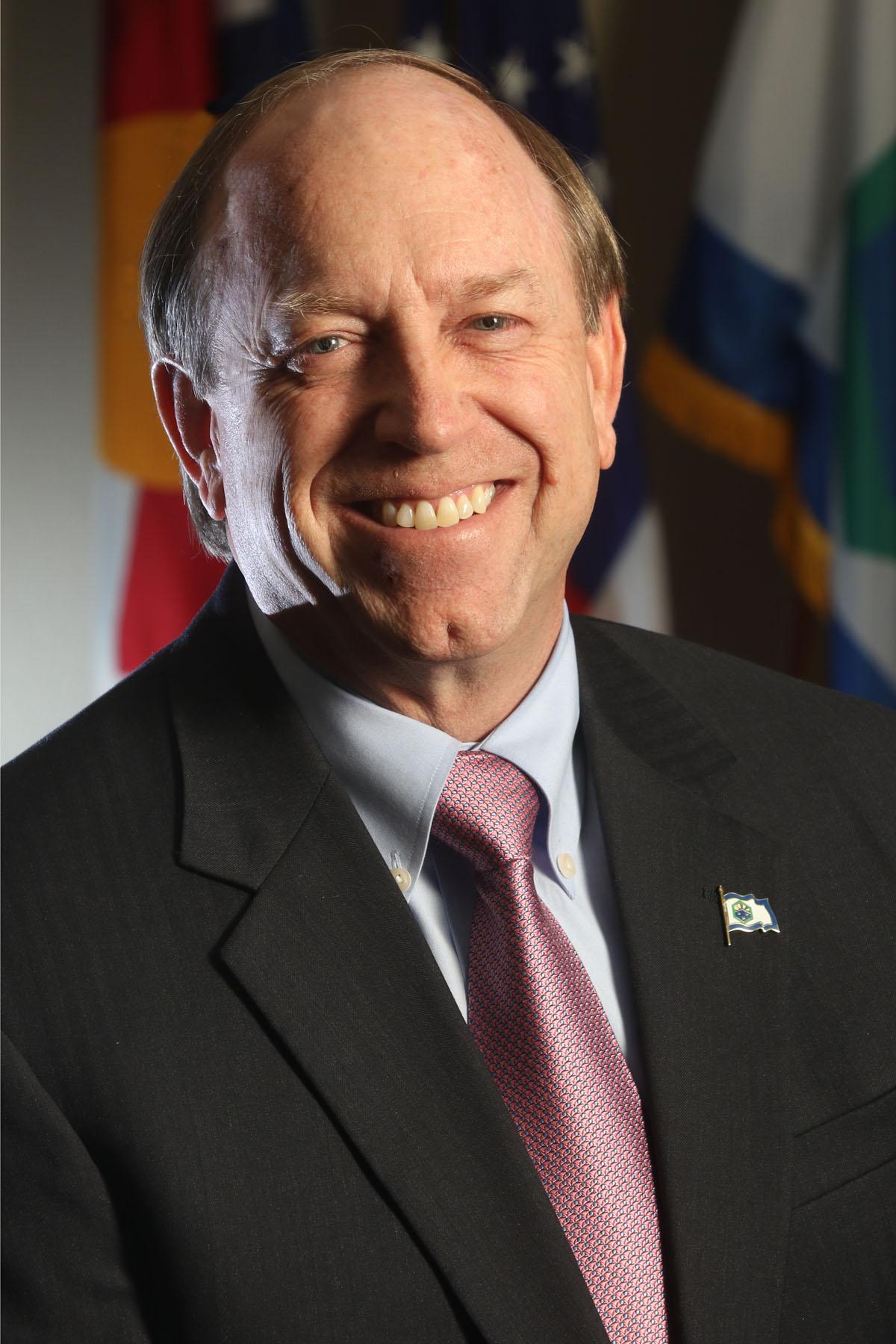
 President Donald Trump wants to give a big boost to the United States military. The proposed $54 billion boost he lays out for the military in his new budget blueprint would be roughly a 10 percent increase. Arguably the most- affected region of Colorado in terms of defense spending would be the Pikes Peak region, which includes Colorado Springs. The Colorado Springs Gazette reports that 40 percent of the region's economy comes from the Pentagon treasury.
President Donald Trump wants to give a big boost to the United States military. The proposed $54 billion boost he lays out for the military in his new budget blueprint would be roughly a 10 percent increase. Arguably the most- affected region of Colorado in terms of defense spending would be the Pikes Peak region, which includes Colorado Springs. The Colorado Springs Gazette reports that 40 percent of the region's economy comes from the Pentagon treasury.
John Suthers is the Republican mayor of Colorado Springs, the state's second largest city. Suthers has also served as Colorado attorney general and as U.S. attorney for Colorado, and has headed the state’s Department of Corrections.
He spoke with Colorado Matters host Ryan Warner about what a bump in defense spending could mean for Colorado Springs, as well as topics such as veteran homelessness and infrastructure.
Editor's Note: Clarifying a statement made by Mayor Suthers regarding transportation funding, he said that 30 percent after the first $300 million on the proposed statewide transportation tax would fund transit. That 30 percent would go to a multimodal transportation fund, which would include transit, biking and walking options.
Read The Transcript:
Ryan Warner: Mayor, welcome to the show. Mayor John Suthers: Glad to be with you. RW: We're going to talk today as well about homelessness in your community and policing. But first, defense accounts for about 40 percent of the economy there. I know that it's still early days, but what sense do you have of how your community will be affected by a potential boost in defense spending? JS: I can't help but believe that we would benefit from it. We have very critical missions located here in Colorado Springs, we've got U.S. Space Command; we've got NORAD, NORTHCOM; Schriever Air Force Base is very involved in GPS and a whole variety of things. I do not believe that we could have a significant military buildup without Colorado Springs benefiting significantly from that. RW: Trump's proposed budget calls for beefing up the nation's cybersecurity system and with the new National Cybersecurity Center in Colorado Springs, I imagine you see some potential there as well. JS: We have really unique synergy in that regard. We've got these very critical military commands that are cyber-dependent. We've got the Air Force Academy and the University of Colorado Colorado Springs that are very, very heavy into the cyber. The Air Force Academy has a center that's basically very much involved in the whole Air Force Cyber program. The University of Colorado Colorado Springs is kind of leading the way in a consortium of universities that degree programs and certification programs for cyber. We've got about 110 private sector cyber security companies. Now many of them have defense contracts. Some of them do not. We've got companies like root9B, which is in tops on the up and coming Cyber 500 that's headquartered in Colorado Springs. We think that's a huge part of our future and I would suspect that any kind of increased military spending in that area would also be of great benefit to Colorado Springs. RW: The President has referred to the military as 'depleted'. Do you see signs of that? JS: You know I'm not involved day-to-day in the military operations so I can't speak to that directly other than to say that when I spend time with General Gonsalves, the commander at Fort Carson, and he talks about the burdens of multiple deployments on our soldiers, it does appear to me that the United States Army is depleted at this point in time in comparison to the past. I can't speak to the Air Force or the Navy, but I do hear a lot of concern about having more soldiers to do all the various missions that they're called upon to do these days. RW: President Trump hopes to achieve this boost he's proposing in defense spending by making significant cuts to domestic programs. There's been a lot of talk about Meals on Wheels taking a hit, for instance, cuts to Interior, which oversees public lands. I think of the fires that have devastated the Colorado Springs area in the past and that may require federal support. So just as the city might stand to gain something, does it also stand to lose something in this proposed budget? JS: Well undoubtedly. Cities our size get block grants through HUD that contribute to our housing programs and things like that. Those seem to be on the line. I think there well could be some other cuts of the nature that you're talking about. Obviously we're well prepared to deal with emergencies ourselves but the feds oftentimes make grant funds available to deal with those issues after the fact and there's certainly a possibility those could be impacted. RW: The president's budget also calls for cuts to climate change programs. Defense Secretary James Mattis' view on climate change seems to be at odds with the administration. He has said that climate change is real and called it a national security issue. As a mayor of a city that is near so many major military installations and that depends on natural tourism, what are your thoughts on climate change and perhaps its relationship to national security? JS: Well my thought is we're moving in a direction that nothing that's going to happen in Washington is going to change in the long run. For example, the Colorado Springs Utility Board has voted to close the Drake Utility Plant in downtown Colorado Springs by 2035. We've been phasing out units over time and that unit will be phased out. There will be, I think, regardless of particular rhetoric that's being spoken about in Washington at this point in time, there'll be less reliance on coal as we move forward. I think there'll be more reliance on natural gas and renewables and I think there's some inevitability about that. So I think that regardless of, as I say, any particular rhetoric in the administration or whatever, I think the path is pretty clear the direction the country's going. RW: You mentioned the Drake Plant. This is the Martin Drake Power Plant. It's coal-fired isn't it? JS: Actually it has multiple units. It has been primarily coal-fired through the years, but is becoming less so and units are being shut down over time with the entire plant being taken out of service no later than 2035. I personally believe it will be earlier than that. RW: You're listening to Colorado Matters. I'm Ryan Warner and we are speaking with the mayor of Colorado's second city, that's John Suthers, he joins us from Colorado Springs. JS: And I'd clarify, it's the second-largest city. We don’t like to refer to ourselves as the second city. RW: As the second city. Very good. JS: Yeah, we think we're the best city. RW: A key word that I omitted there, mayor. Your community is also home to many veterans and nearly two years ago, the city took on the Mayor's Challenge. This was a call to action from the White House to end veteran homelessness, more accurately to reach something called "functional zero" by the end of 2015. Craig Schlattmann was on our program about two years ago, he was with the non-profit Homes for All Veterans and he explained the goal this way. Craig Schlattmann: We will always have people and veterans that face a housing crisis, either the fact that they're literally homeless or that they're in danger of being homeless. So "functional zero" says that when someone is homeless or when someone is in danger of homelessness that we know where to send them and we know how to end up offering housing and helping them get back on their feet. RW: Colorado Springs has not yet achieved "functional zero" for veteran homelessness. Why do you think that is JS: Well what we have been able to accomplish with some investment in the Colorado Springs Rescue Mission is that we are able to offer a shelter bed to any homeless veteran that we find. Where we have not succeeded to the extent that we would like, and I think it has something to do with the dramatically improving economy, is in the permanent supportive housing arena. The voucher that we're able to give them that gives them x-amount of money a month to rent an apartment, is becoming less viable as the rental rates are increasing dramatically. And in Colorado Springs where we started from a much lower place than say the Denver Metro area, we actually have among the highest increasing rental rates in the country right now which is a function of the dramatically improving economy. And when you've got, let's say we've got a veteran with mental health or substance abuse issues, it is very tempting for an apartment manager to want to go to a market rate that's going to bring in more money than to take on that particular issue. So I think it takes much more work but we're committed to doing the work that we need to do in creating the housing, the available housing to deal with this population. I think we've got a good strategy. We've got a group called the Continuum of Care, which is the local service provider Springs Rescue Mission-Catholic Charities-Ecumenical Social Ministries. We work with the veteran's organizations to improve this situation. I think while we haven't got to where we'd like to be, we've gotten close and we are absolutely committed to closing the gap. RW: So there is an affordable housing crunch in Colorado Springs and the environs. Is this about building new housing, new affordable housing, or negotiating with owners of current properties, do you think? JS: I think it's both. I think it's increasing the inventory of affordable housing, Colorado Springs Housing Authority can be a big aid there. I think it's increasing the voucher support that we're able to provide to veterans. And whether that's going to be doable, depending upon what happens in Washington, I'm not sure, but you'll not find a community that is more committed to its veterans than Colorado Springs for rather obvious reasons. We've got thousands and thousands and thousands of veterans who want to help other veterans. And so whatever the climate, the funding climate is, we're going to continue to work as hard as we possibly can to reach this functional zero. RW: Because there are obviously affordable housing questions that tie to the federal budget as we were discussing earlier. JS: Absolutely. RW: I want to talk a bit about infrastructure, Mayor Suthers. There's a year-old tax in Colorado Springs to pay for roads. Voters had to approve that of course. Transportation money a big topic at the legislature this session. Lawmakers unveiled a funding plan to ask voters for a state-wide sales tax increase. I'm curious if you support that broader state-wide approach. JS: I do not support the current version and here's why. With the transportation, sales tax increase that Colorado Springs did last year, we're at 8.25 percent for the total sales tax. The current version of that bill calls for a 0.62 percent increase. That would take us to 8.87 percent, perilously close in my opinion to nine percent which in my opinion is a point that gives you no flexibility in terms of any future. What's important to know is that Colorado Springs, only 8 percent of our revenues come from property tax. There are other cities in Colorado that have a very, very small property tax base in relationship to sales tax. We're heavily dependent upon sales tax. Then what I thought this bill ought to be centered on is getting state highways fixed. Expansion of I-25, both north and south of Denver, I-70. But as you know only $300 million of the $700 million that's in this tax increase would go to state highways and the rest is kind of a Christmas tree that comes back to local governments. Of the excess over $300, 30% goes to transit. I think that would be most beneficial to the metro Denver area and then it's divided between counties and cities after that. Here's a rub that Colorado Springs has that probably no other city has, because the economy's doing well, we are spinning to our TABOR cap. Any of that money that came our way in grants or in the local government money, we'd have to go to the voters and ask for their permission to keep it. Because we have a TABOR in our city charter as well as the state TABOR that's imposed on local governments. RW: And it covers those grants, eh? JS: Absolutely. We had to ask permission last year to keep some money that came in the form of a state grant. RW: You mentioned transit there as mostly benefiting mostly metro Denver but I've seen some say that Colorado Springs and that region, the greater Pike's Region could use some transit. JS: Well yes and we have what's called Mountain Metro Transit which is funded by PPRTA, which is a regional, 10 percent of the regional, we have a one percent tax that's imposed regionally, 10 percent of that goes to fund our Mountain Metro Transit, which is not just Colorado Springs but includes some of the environs. And then the city puts what's called a maintenance of effort of a minimum $7.6 million a year into it. I don't doubt that we would get some money out of some transit dollars but I do think it's interesting that the metro mayors seem to be chomping at the bit to get at those dollars. And I just have a feeling it would be most beneficial there and they, apparently don't think they, have the problem that we do in terms of asking voters to retain any of that money. RW: So very briefly, would you support a state-wide tax increase for transportation, sales tax increase, if it were a more modest amount? JS: I might. I wish it wasn't sales tax. I'd much rather prefer it be gas tax but as you know that doesn't poll very well. But I think this is asking for too much and I think it's, I think you'll see others, cities, particularly outside of the Denver Metro area be very concerned about what this does to their sales tax position. RW: Onto the incredibly sexy issue of storm water now. This is actually hugely important to prevent flooding and to water quality. But you know if you walked up to someone and said "There's a storm water measure on the ballot", I think that some might be hard-pressed to explain what that is. So next month, April 4, Colorado Springs voters will vote on Ballot Issue 2 to allow the city to keep more revenue under TABOR for improvements. Just briefly, how's the pitch to voters going? JS: I think it's going well. The polling I've seen is pretty good. You're exactly right, it's hard to get them too enthused about storm water, but we have a long, tormented history. Colorado Springs has grown rapidly, we're 460,000 people, 75 percent of that growth has taken place in the last 40-45 years. And we probably did not do as good a job as we should have in that tremendous growth period dealing with storm water. A real wake-up call in the late 90s, where some flooding instance that caused the city and council and mayor to impose a storm water fee, like most major cities have. But Doug Bruce led a campaign against that in 2009, calling it a "Rain Tax" and it passed and since then we've been funding storm water, we went from $15-16 million a year, from that fee to an average of $3 million in general fund a year with some grants. And that's inadequate and that caused us legal problems with Pueblo who tried to stop the southern delivery system, our massive water project, from going online last April. And we entered into an agreement with them where we committed over the next twenty years to spend the amount that we would have if we still had the storm water enterprise. Because that was Pueblo's beef, we gave you permission to build this, gave you what's called a 1041 permit and then you defunded the enterprise. So we've resolved that issue with Pueblo but we still have a suit from the EPA. Until that suit's resolved, I don’t feel comfortable going to the voters and saying this is the long-term solution because I couldn't guarantee that it is. But I think we're going to resolve that suit in the next year or two and in the meantime, we have an obligation on an average of $17 million a year, over the next several years, in our agreement with Pueblo. That's coming out of general fund. If we're able to retain the $6 million a year for the next couple of years, that will give us, we can spend more than that $17 million and protect us from a downturn on the backside. RW: I'm sorry that we've run out of time, Mayor, there was more on my list to talk to you about. But thanks for broaching these issues with us. JS: Well Colorado Springs is doing great and I'm pleased to talk a little bit about some of the things going on down here. |

